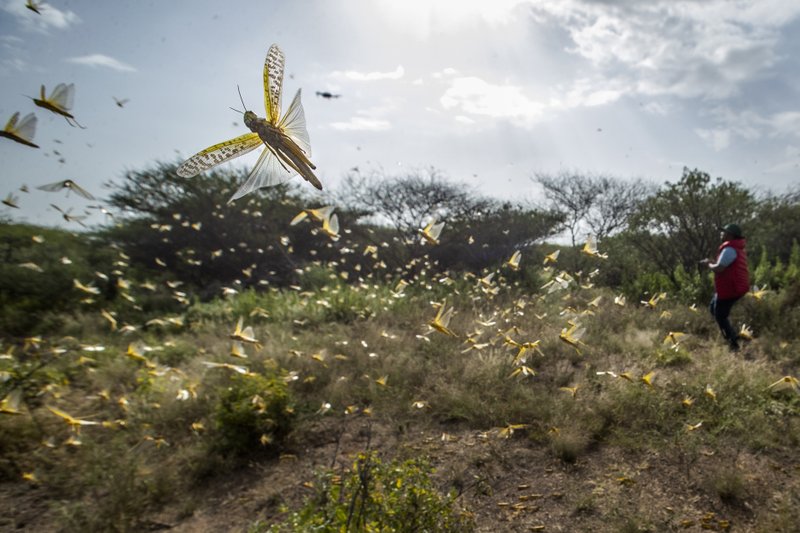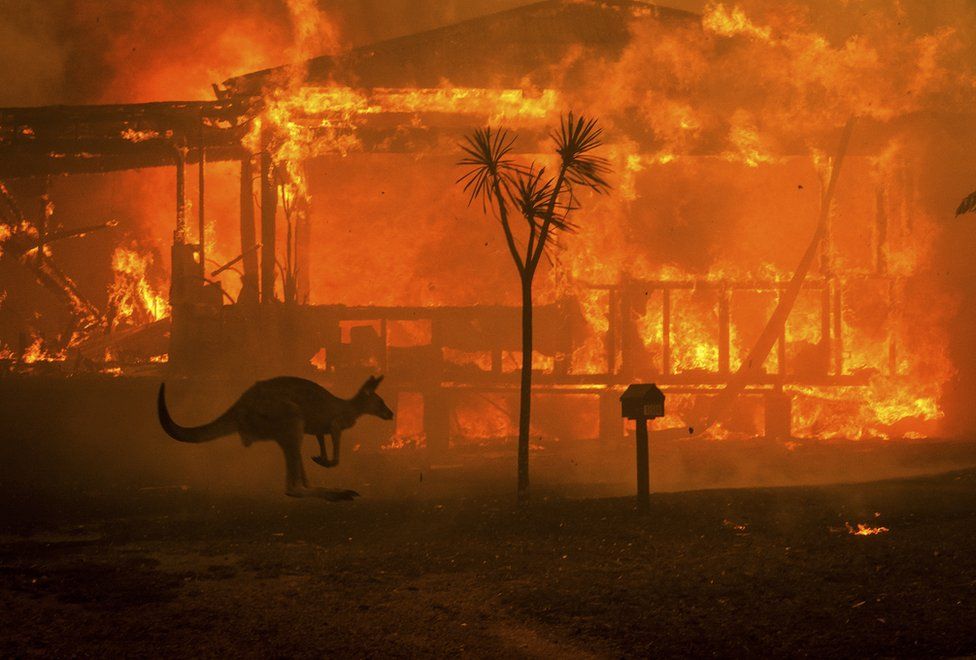East Africa’s huge locust outbreak spreads to Central Africa – Congo sees locusts for first time in 75 years

By Rodney Muhumuza
25 February 2020
KAMPALA, Uganda (AP) – A small group of desert locusts has entered Congo, marking the first time the voracious insects have been seen in the Central African country since 1944, the U.N. Food and Agriculture Agency said Tuesday as U.N. agencies warned of a “major hunger threat” in East Africa from the flying pests.
Kenya, Somalia, and Uganda have been battling the swarms in the worst locust outbreak that parts of East Africa have seen in 70 years. The U.N. said swarms have also been sighted in Djibouti, Eritrea, and Tanzania and recently reached South Sudan, a country where roughly half the population already faces hunger after years of civil war.
A joint statement Tuesday from FAO director-general Qu Dongyu, U.N. humanitarian chief Mark Lowcock, and World Food Program Executive Director David Beasley called the swarms of locusts “a scourge of biblical proportions” and “a graphic and shocking reminder of this region’s vulnerability.”
The FAO said mature locusts, carried in part by the wind, arrived on the western shore of Lake Albert in eastern Congo on Friday near the town of Bunia. The country has not seen locusts for 75 years, it said.
“Needless to say the potential impact of locusts on a country still grappling with complex conflict, Ebola and measles outbreaks, high levels of displacement, and chronic food insecurity would be devastating,” the U.N. officials said in the joint statement. [more]


